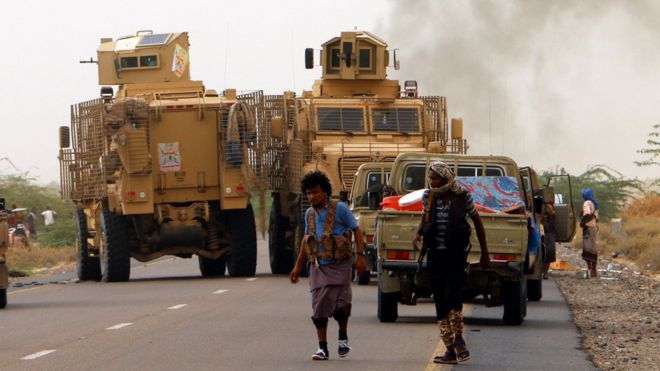The entry of Yemen’s Iran-backed Houthi rebels in the Israel-Hamas conflict, has added a new dimension to the ongoing hostilities in the Middle East. Despite their historical animosity towards Israel, the Houthis’ involvement has surprised many observers.
The group, which has slogans like “Death to Israel,” has been targeting commercial vessels in the Red Sea, alleging connections to Israel. In response, the United States and the United Kingdom have launched retaliatory strikes, escalating tensions in the region.
The recent escalation in the Israel-Hamas conflict, triggered by a Hamas attack on Israel on October 7, marks the latest confrontation between the two sides. However, this is the first time the Houthis have entered the conflict involving the two.
The Zaydi Shia group seized power in parts of Yemen including capital Sanaa in 2014. This prompted the country’s then President Abdrabbuh Mansur Hadi to flee to neighbouring Saudi Arabia which launched an international military coalition to back his government.
The reasons behind the Houthis’ entry into the conflict are multifaceted. In 2023, Iran and Saudi Arabia restored diplomatic ties. This happened in the backdrop of United Nations-mediated talks between the Houthis and Saudi Arabia. Although a peace agreement remains elusive, reduced fighting within Yemen has allowed the rebels to redirect their focus externally.
While Houthi attacks have caused minimal damage to Israel, their declaration of war has garnered domestic support, with a significant portion of the population sympathising with the Palestinian cause.
However, amid the focus on the Red Sea crisis, Yemen’s humanitarian situation continues to worsen. The UN has labeled Yemen the world’s worst humanitarian crisis, with millions facing food insecurity and displacement.
The recent escalation further complicates efforts to provide aid, as the United States has labeled the Houthis a “terrorist group.” While Washington assures that humanitarian assistance will continue, there are concerns that aid organisations may hesitate to operate in Houthi-controlled areas due to fears of association with terrorism.
By Annu Kaushik














